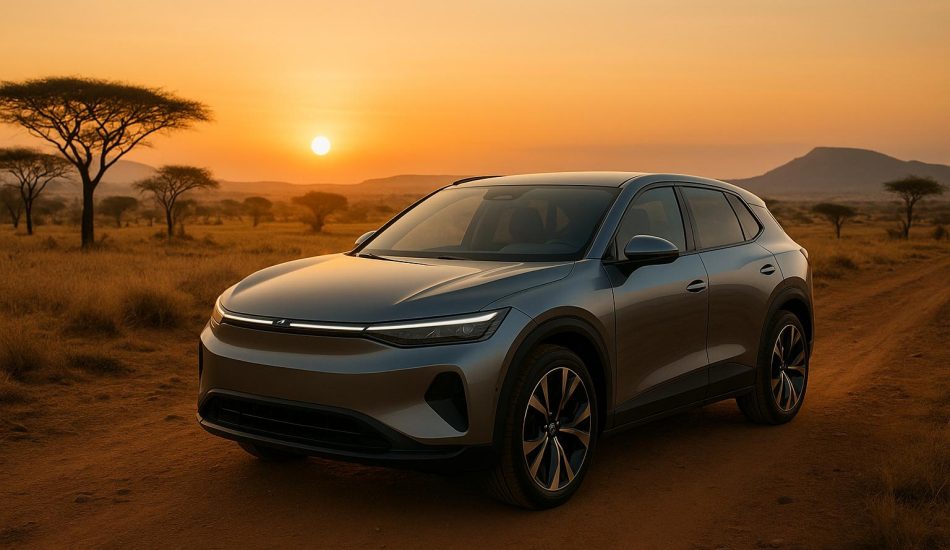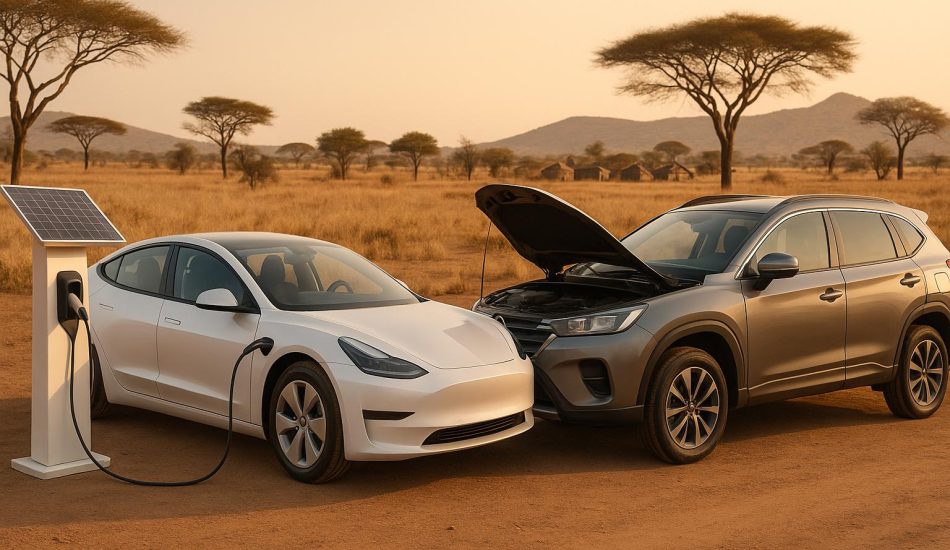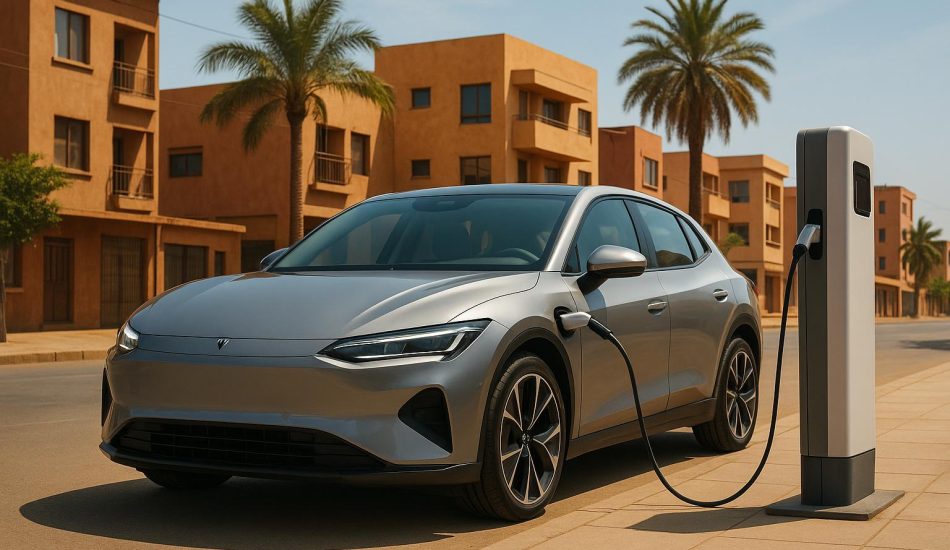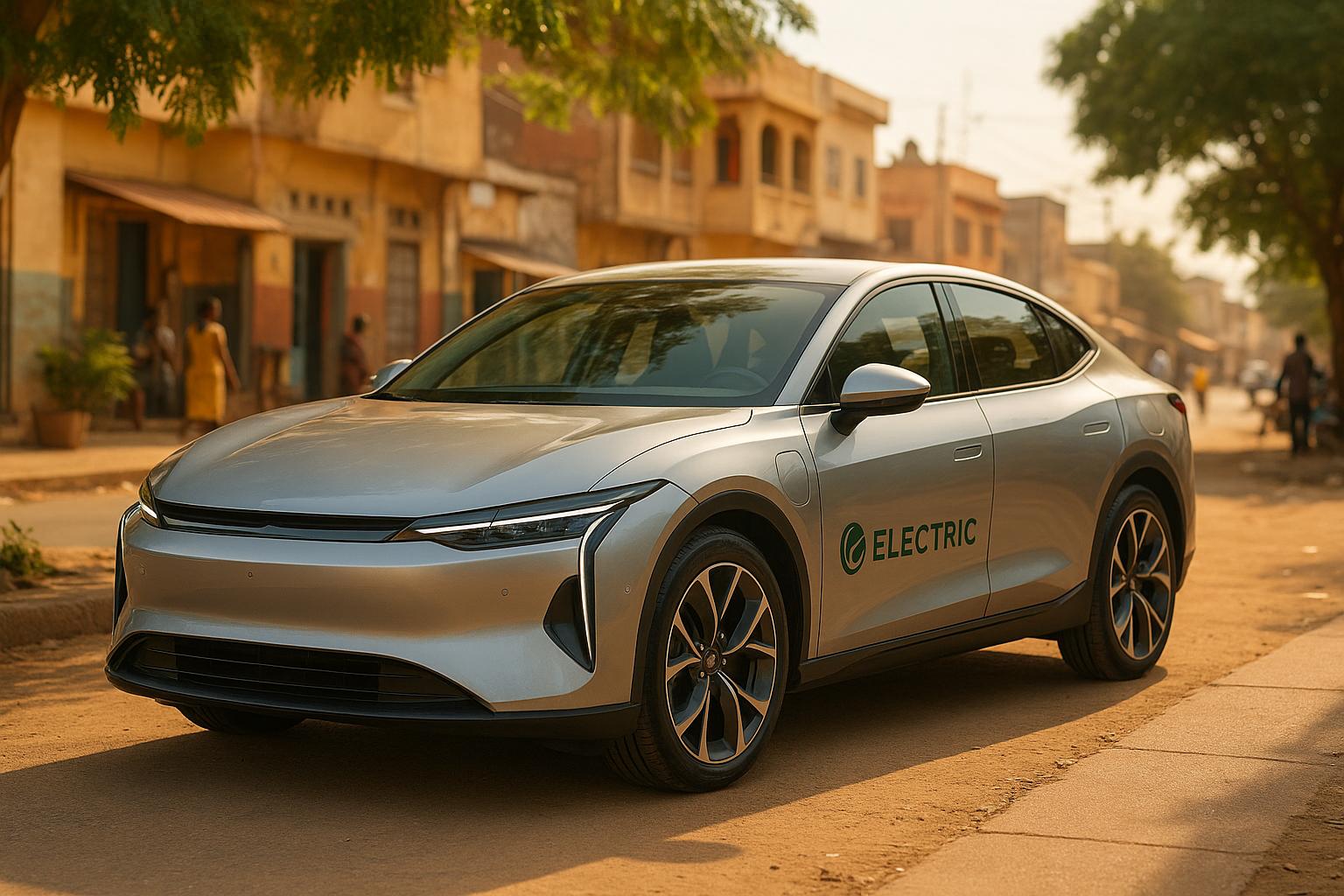
Looking for affordable, feature-packed electric vehicles in Africa? Chinese automakers are leading the charge with EVs that suit African roads, budgets, and charging infrastructure. Here’s what you need to know:
- BYD: Offers affordable models like the Dolphin ($29,995) and premium options like the Seal ($55,555). Strong after-sales support and local assembly partnerships make it a top choice.
- Geely: Known for models like the Geometry C and Galaxy E5, starting at $15,750, with advanced features and reliable service networks.
- Dongfeng: Entered Africa with the Dongfeng BOX, priced at $21,500 to $29,000, offering fast charging and modern tech.
- Leapmotor: Launching the C10 REEV by late 2025 with a mix of electric and extended range, priced around $40,500.
- ROX Motor: The ROX 01 SUV combines luxury and performance with a range of 683 miles, starting at $41,050.
Quick Comparison
| Brand | Notable Models | Starting Price (USD) | Range (miles) | Highlights |
|---|---|---|---|---|
| BYD | Dolphin, Seal, Atto 3 | $29,995 | 211–453 | Affordable, local assembly, after-sales support |
| Geely | Geometry C, Galaxy E5 | $15,750 | 273–440 | Advanced tech, robust service network |
| Dongfeng | Dongfeng BOX | $21,500 | 267 | Fast charging, modern features |
| Leapmotor | C10 REEV | $40,500 | 603 (total) | Extended range, fast charging |
| ROX Motor | ROX 01 | $41,050 | 683 | Luxury SUV, performance-focused |
Chinese EVs are transforming Africa’s market with competitive prices, innovative features, and localized solutions. Whether you’re looking for budget-friendly options or premium vehicles, there’s something for everyone.
Chinese Tech Driving EV Boom Africa Can’t Afford to Miss
1. BYD
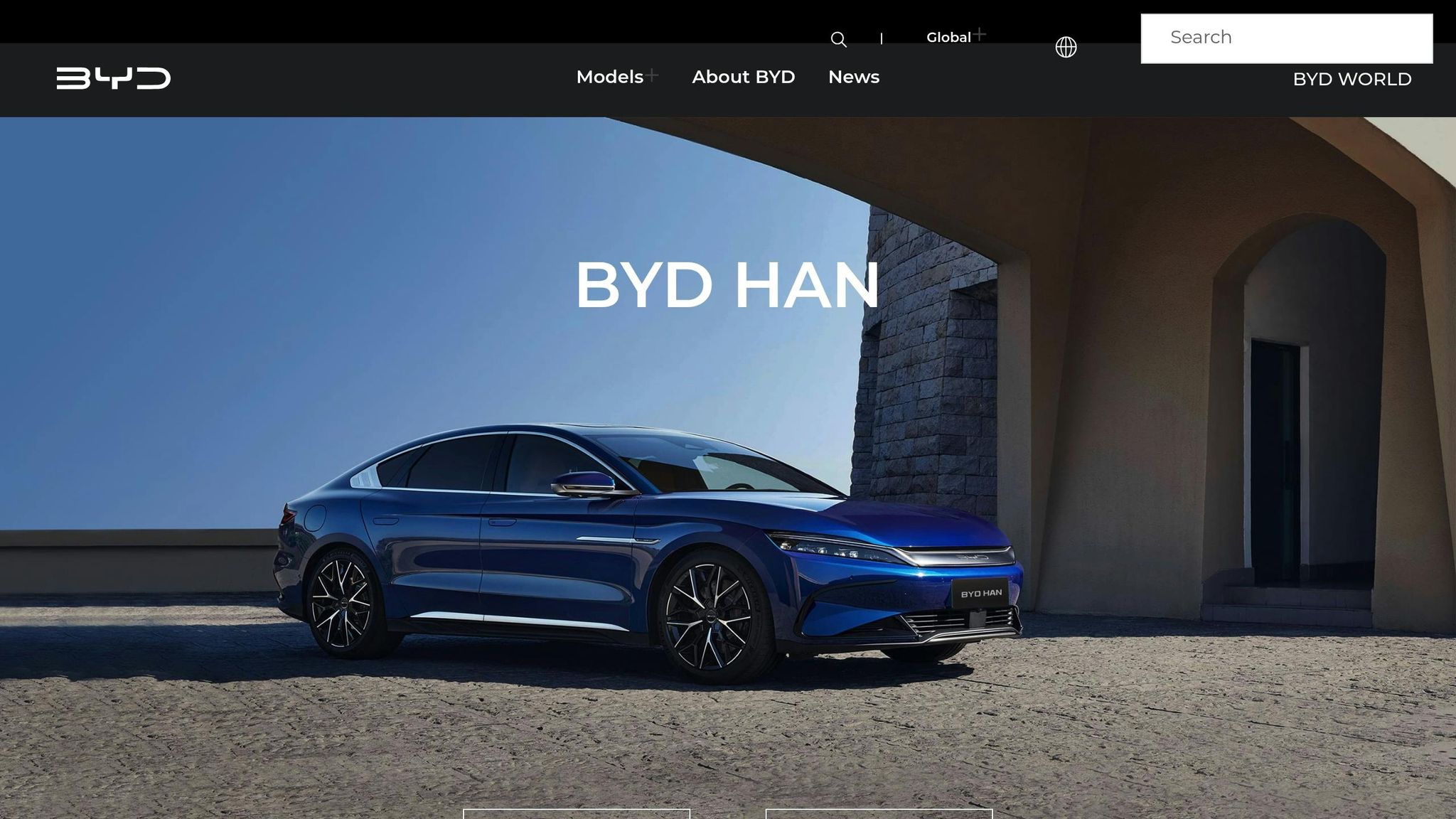
BYD has firmly established itself as a leader in Africa’s electric vehicle (EV) market. With over 3 million EVs sold worldwide in 2023, the company now operates in 16 African countries as of April 2025. This expansion highlights BYD’s commitment to making electric mobility more accessible across the continent, with a particular focus on markets like South Africa.
| Model | Price (USD) | Key Features |
|---|---|---|
| Dolphin | $29,995 | South Africa’s most affordable EV (R539,900) |
| Atto 3 | $42,665 | Mid-range SUV offering extended driving range |
| Seal | $55,555 | Premium sedan packed with advanced features |
In South Africa, pricing remains a critical factor for consumers. Steve Chang, BYD South Africa’s general manager, explained the company’s pricing strategy:
"What we are trying to do is get an EV here that costs between R300,000 and R350,000. That is where we need to go with the South African consumers."
Chang also shared insights about the pricing of the Seal:
"With the BYD Seal [the company’s newest model in South Africa], the communication that we got from China was to start retailing close to R1.4 million. After much back and forth, we decided to forego profits on the car to get that price under 1 million."
In addition to competitive pricing, BYD has prioritized strong after-sales support. In Benin, for instance, the local distributor CFAO Group has launched a dedicated service center and showroom in Cotonou. This ensures reliable local service and access to genuine spare parts.
Globally, BYD reached a milestone of over 9 million new-energy vehicles sold by September 2024. Building on this success, the company is expanding its offerings in South Africa. By the end of Q1 2025, BYD plans to introduce plug-in hybrid vehicles, broadening its lineup of eco-friendly options. This move aligns with the rapid growth of South Africa’s EV market, which recorded over 3,000 sales in Q1 2024 – nearly half of the total EV sales for all of 2023.
2. Geely
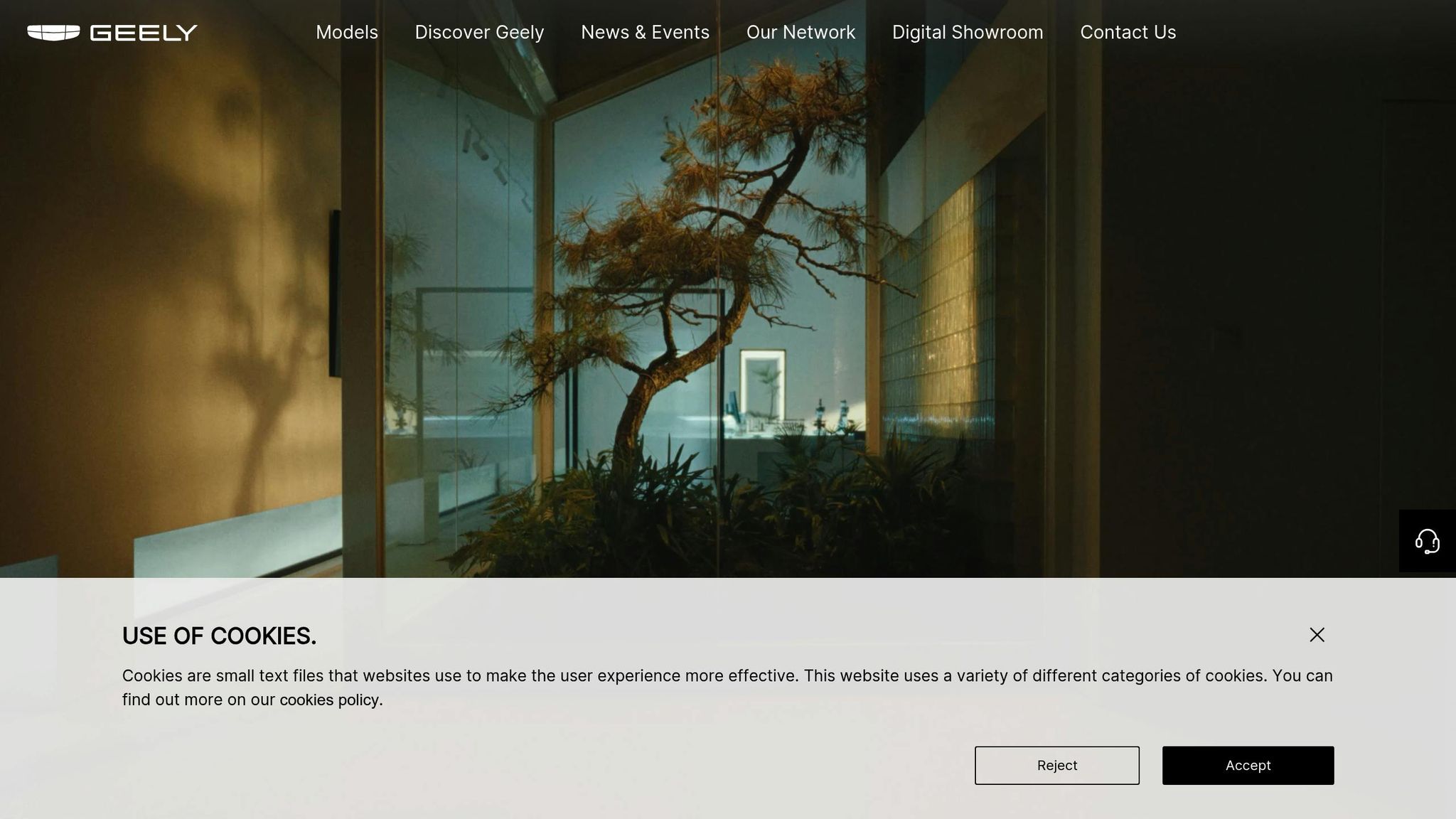
Geely is making waves in Africa, riding on the surge of Chinese EV development across the continent. In just the first half of 2024, the company launched an impressive lineup of 12 new products in 30 international markets. Among these, the Geometry models stand out as a cornerstone of Geely’s strategy in Africa.
One of the key players in this lineup is the Geometry C, which is currently available in Egypt:
| Feature Category | Specifications |
|---|---|
| Dimensions | Length: 174.5 inches, Width: 72.2 inches, Height: 61.4 inches |
| Performance | 201 horsepower, 310 N·m torque |
| Storage | 259 L trunk capacity |
| Technology | 12.3-inch touchscreen, HUD projection display |
| Safety | Adaptive cruise control, Lane Keeping Assistance |
The Geometry C also boasts advanced features like an AQS air filtration system for cleaner cabin air and a 540° AR chassis perspective, which enhances driver visibility.
In August 2024, Geely introduced the Galaxy E5, a model designed with affordability in mind. Priced at just $15,750, this EV offers a range of 440 km (273 miles) and includes the cutting-edge Aegis Short Blade Battery technology. Looking ahead, Geely has plans to roll out seven Galaxy models by 2025, underscoring its commitment to innovation and reliability. Alongside these advancements, the company is also focusing on building a dependable after-sales network.
To support its growing presence in Africa, Geely has established a robust service network. Parts Support serves as the official importer of Geely spare parts. Meanwhile, Masterparts provides aftermarket parts in regions like the Western Cape, KwaZulu-Natal, and Windhoek in Namibia. Additional maintenance support is available through Mandarin Parts Distributors based in Pretoria.
This extensive network ensures Geely is well-positioned to cater to the needs of African EV owners.
3. Dongfeng

Dongfeng Motor Corporation, China’s second-largest automotive manufacturer, is making strides in the African electric vehicle market. In December 2024, the company officially entered South Africa through E Auto Motor SA, debuting the Dongfeng BOX, an electric hatchback designed to compete in this growing market.
The Dongfeng BOX comes with impressive specifications:
| Feature | Specification |
|---|---|
| Power Output | 70kW (94 hp) |
| Torque | 160 N·m |
| Battery Capacity | 42.3kWh |
| Maximum Range | 267 miles |
| Top Speed | 87 mph |
| Fast Charging | 30-80% in 30 minutes |
With a price range of $21,500 to $29,000, the BOX is designed to offer both value and performance. It also includes modern features like a 12.8-inch infotainment screen, a digital instrument cluster, and advanced driver assistance systems, such as adaptive cruise control and lane-keeping assist.
"We’re not just selling a car; we’re introducing a new ecosystem of automotive technology. The Dongfeng BOX represents a perfect blend of innovation, sustainability, and forward-thinking design."
– Coellet Haripersad, Sales Manager at E Auto Motor SA
Dongfeng’s ambitions extend beyond South Africa. The company has established partnerships across Africa to strengthen its presence:
- Tunisia: Official dealership through NIMR
- Kenya: Operations managed by DFAC Kenya Ltd.
- Libya: Active in the market, with plans to introduce the MAGE 2025 model soon
These collaborations underline Dongfeng’s commitment to reaching more African consumers with its electric vehicle lineup.
Additionally, Dongfeng plans to launch two more electric models in South Africa by the end of 2025, including the right-hand drive Dongfeng 007. Backed by its Fortune Global 500 status and an annual revenue of $93.294 billion, the company is well-positioned to expand its footprint.
"This strategic partnership will ensure comprehensive customer support across the region. The BOX launch marks just the beginning of Dongfeng’s journey in bringing sustainable mobility solutions to South African consumers."
– Leo Liao, Africa Regional Sales Director of Dongfeng
sbb-itb-99e19e3
4. Leapmotor
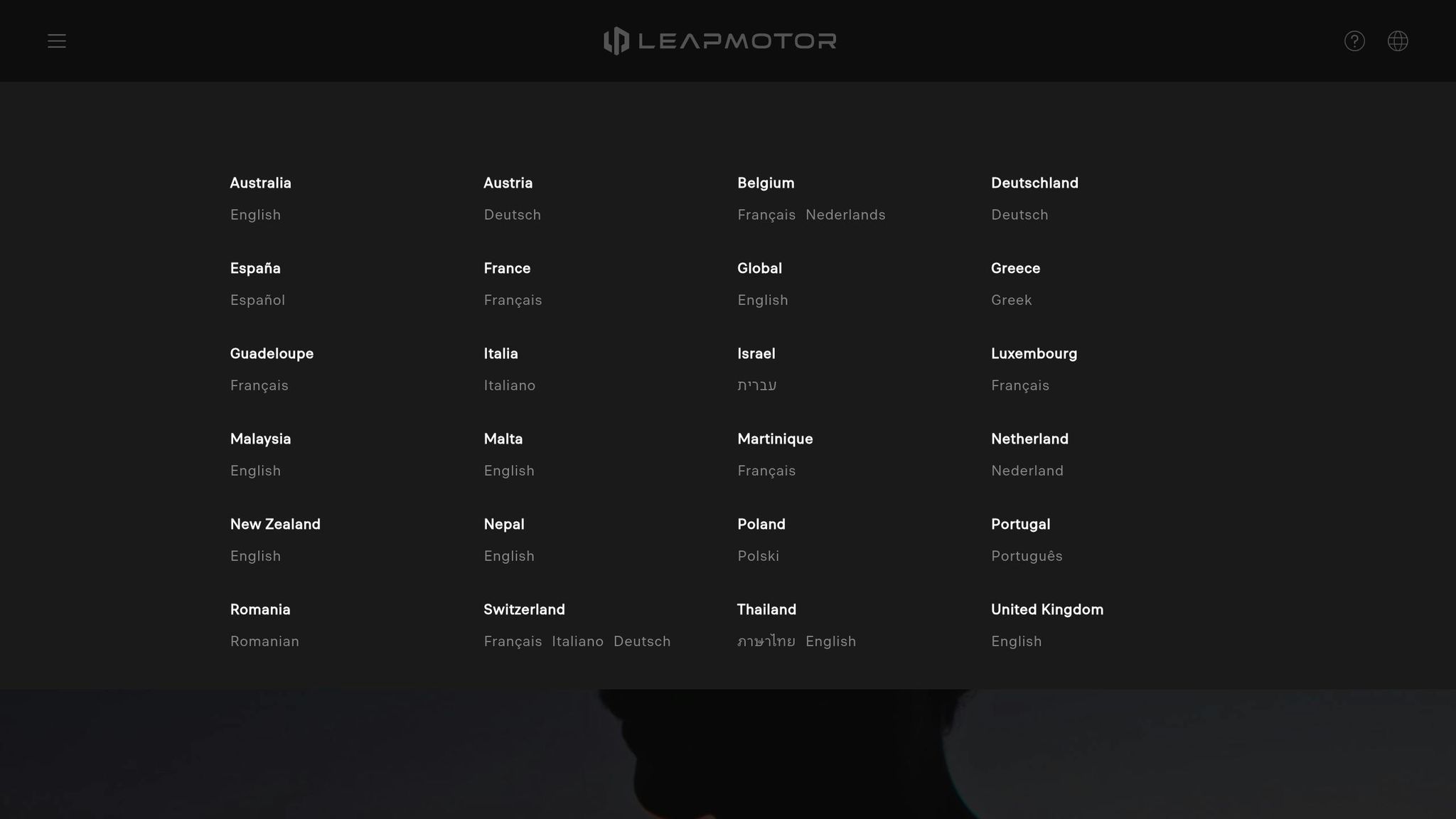
Leapmotor is gearing up to make its mark in Africa by late 2025, thanks to a partnership with Stellantis. Their debut model, the C10 REEV (Range-Extended Electric Vehicle), promises to address one of the biggest concerns for EV buyers – range anxiety.
The C10 REEV blends electric power with an extended range, making it a practical choice for drivers unsure about fully committing to electric vehicles. Here’s a quick look at its key specs:
| Feature | Specification |
|---|---|
| Length | 186.6 inches (4,739 mm) |
| Wheelbase | 111.2 inches (2,825 mm) |
| Electric Motor Power | 212 hp (158 kW) |
| Torque | 236 lb-ft (320 Nm) |
| Battery Capacity | 28.4 kWh |
| Electric Range | 90 miles (145 km, WLTP) |
| Total Range | 603 miles (970 km) |
| Acceleration (0–60 mph) | 8.5 seconds |
| Cargo Space | 14.1 cu ft (expandable to 48.6 cu ft) |
When it comes to charging, the C10 REEV is no slouch. Its 65 kW DC fast charger can get the battery from 30% to 80% in just 18 minutes. For home setups, it supports 6.6 kW AC charging, making overnight charging a breeze.
"The REEV is the perfect answer for customers who want to jump into electric mobility but are still not fully convinced by EVs." – Stellantis spokesman
Stellantis has made a bold move with Leapmotor, investing €1.5 billion (about $1.7 billion) for a 20% stake in the company. Their goal? To sell 300,000 vehicles outside China by 2030. The C10 REEV is expected to hit the South African market with a price tag of around €36,000 (approximately $40,500).
The Ups and Downs
Strengths:
- Sleek, modern design
- Impressive performance and extended range
- Fast-charging capability
Weaknesses:
- No Apple CarPlay or Android Auto
- Over-reliance on the central screen for controls
- Minimalist interior may not appeal to all
- Some safety systems can feel overly intrusive
Designed as a family-friendly EV, the C10 REEV reflects a growing trend of Chinese automakers crafting electric vehicles tailored for Africa’s developing infrastructure. It’s clear Leapmotor is aiming to make a strong first impression.
5. ROX Motor
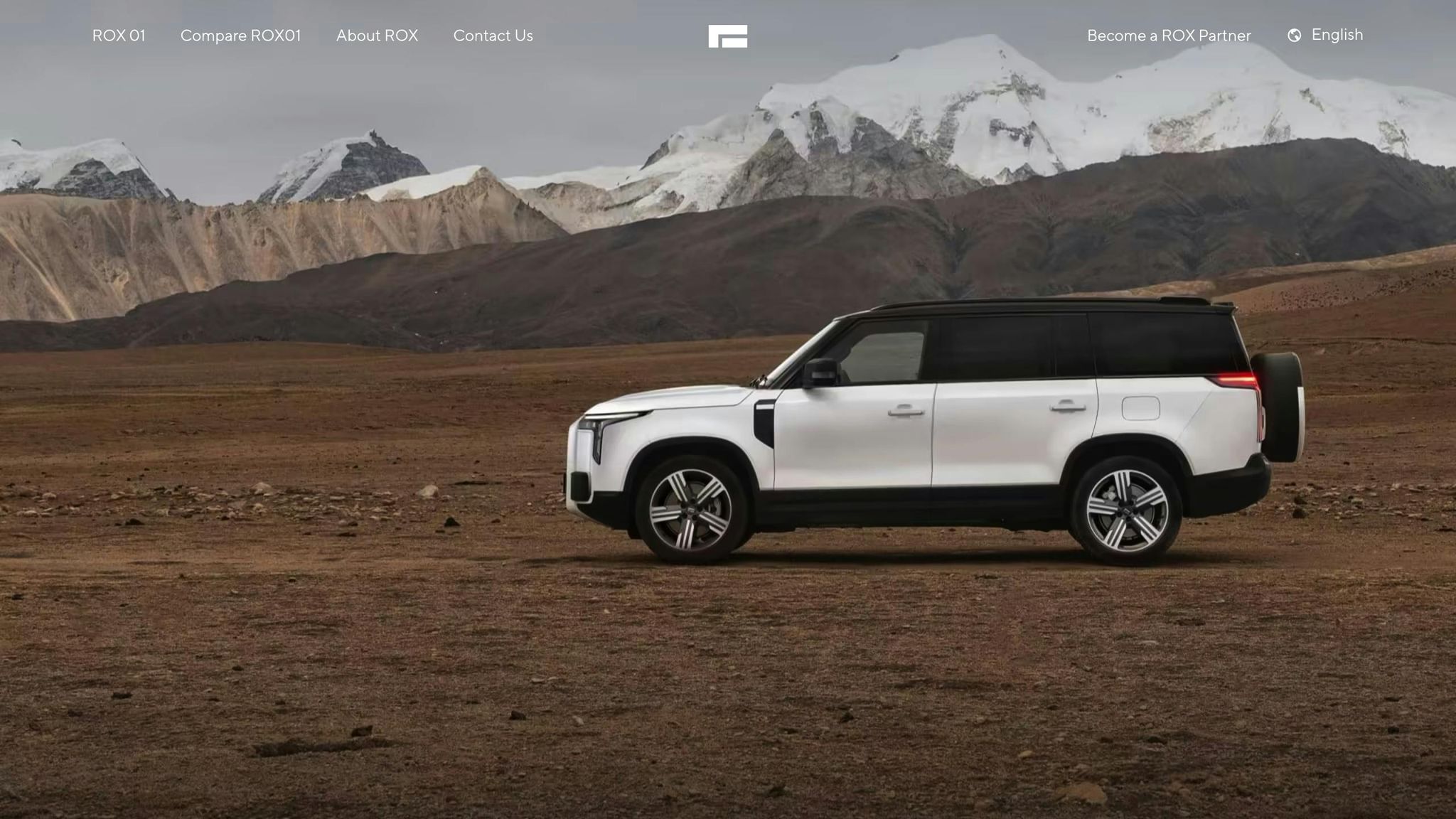
After exploring offerings from BYD, Geely, Dongfeng, and Leapmotor, it’s time to turn the spotlight on ROX Motor, another standout in the Chinese EV landscape making waves in African markets. ROX Motor enters the extended-range EV scene with its flagship model, the ROX 01, which has already gained traction in regions like Saudi Arabia, Qatar, and the UAE.
Here’s a quick look at the ROX 01’s key specifications:
| Feature | Specification |
|---|---|
| Combined Range | 683 miles (1,100 km) |
| Electric Range | 146 miles (235 km) |
| Battery Capacity | 56.01 kWh |
| System Output | 476 horsepower |
| Torque | 546 lb-ft (740 Nm) |
| Acceleration (0-60 mph) | 5.5 seconds |
| Starting Price | $41,050 |
The ROX 01 combines a 1.5L turbocharged four-cylinder range extender with an electric drive system. This blend of power and efficiency underscores ROX Motor’s commitment to creating versatile EVs that cater to diverse driving needs.
Configurations Tailored for Different Lifestyles
The ROX 01 is available in two distinct configurations:
- 6-seater Luxury variant: Features a premium interior for those prioritizing comfort and style.
- 7-seater Sport model: Offers more seating capacity while maintaining its performance edge.
These options reflect careful consideration of the African market, where vehicles often need to balance passenger capacity with performance, particularly in areas with limited charging infrastructure.
A Strong Debut and Global Presence
When the ROX 01 debuted at the LEAP 2025 event in Saudi Arabia, it made an immediate impact, securing over 200 orders on the very first day. Its extended range and ability to handle varied terrains make it an ideal choice for regions where charging stations might be sparse.
ROX Motor’s growing presence is hard to ignore – it already has sales and service networks established in over 20 countries, setting the stage for broader expansion into Africa.
Market Positioning
With a starting price of $41,050, the ROX 01 targets the premium electric SUV market, offering a combination of impressive range and robust performance. The model’s reception in overseas markets speaks volumes, with over 10,000 orders already placed. This success highlights growing trust in Chinese EV technology and positions ROX Motor as a key player in the global electric vehicle market.
Brand Comparison
When weighing the top Chinese electric vehicle options in Africa, two things stand out: affordability and long-term value. A closer look at pricing makes this clear. For instance, in Ghana, an electric sedan costs about $26,000, while a comparable internal combustion engine (ICE) vehicle is priced around $10,000. That price gap highlights the tough decision buyers face – balancing higher upfront costs against potential savings on fuel and maintenance over time. With Chinese EVs steadily gaining popularity, this trade-off becomes even more relevant.
Chinese manufacturers are stepping up with localized solutions to address these challenges. Take Ghana’s Solar Taxi, for example. By combining low-cost Chinese solar technology with innovative mobility solutions, they’re working to make cleaner, more affordable transportation a reality.
"Africa has the opportunity to lead in this space. If we work together and trade among ourselves, we can create a thriving EV ecosystem that benefits everyone."
Although technical features differ across models, Chinese EVs are playing a growing role in shaping Africa’s electric vehicle market.
Summary
This overview highlights the affordability and performance of Chinese electric vehicles (EVs) in Africa, showcasing their growing appeal across the continent.
Chinese EV manufacturers are making waves in Africa by offering budget-friendly options paired with advanced features. As of May 2025, the market caters to a wide range of buyers, from those seeking economical models to those interested in premium vehicles. The buying process is simplified through EV24.africa, which handles everything from vehicle selection to shipping. Buyers can choose between Roll-on/Roll-off (RoRo) or container shipping, with full support for customs clearance and local registration.
For those on a budget, entry-level models like the GEELY PANDA MINI BASE ($5,880) and LINGBOX UNI ($4,800) are available. On the higher end, premium options include the LEAPMOTOR C01 ($40,090) with a 392-mile range and the BYD TANG EV 2024 ($34,700) boasting a 453-mile range.
Here’s a breakdown of the offerings by price category:
| Price Range | Notable Models | Range (miles) |
|---|---|---|
| Under $10,000 | GEELY PANDA MINI BASE, LINGBOX UNI | N/A |
| $10,000–$30,000 | BYD DOLPHIN ACTIVE (211 miles), DONGFENG eπ 008 EV (395 miles) | – |
| Over $30,000 | BYD TANG EV 2024 (453 miles), LEAPMOTOR C01 (392 miles) | – |
With availability across all 54 African countries, Chinese EVs are positioned to significantly influence the shift toward eco-friendly transportation. Their mix of competitive pricing, diverse model options, and reliable after-sales support makes them a strong contender in Africa’s journey toward a greener future.
FAQs
Why are Chinese electric vehicles becoming so popular in Africa?
Chinese electric vehicles (EVs) are becoming increasingly popular in Africa, and it’s easy to see why. One of the biggest draws is their pricing – many Chinese EV models are much more affordable than traditional gas-powered cars. On top of that, they’re cheaper to run since electricity often costs less than gasoline. For many buyers, this combination of lower upfront and operating costs makes them a smart financial choice.
Another advantage is the variety of vehicles available. Whether you’re in the market for a sedan, an SUV, or even an electric motorcycle, there’s something to suit different tastes and needs. Plus, government programs, like tax breaks and subsidies, are making it even easier for people to switch to EVs. Together, these factors make Chinese EVs a practical and budget-friendly option for sustainable transportation in Africa.
How are Chinese electric vehicle brands tackling the issue of limited charging infrastructure in Africa?
Chinese electric vehicle (EV) manufacturers are tackling Africa’s charging infrastructure challenges with creative solutions designed specifically for the region. A key focus has been on developing models with longer battery ranges, ensuring drivers can cover greater distances without needing frequent recharges – an essential feature in areas where charging stations are few and far between.
Some companies are also introducing portable charging systems and solar-powered charging stations, offering practical alternatives for regions with inconsistent electricity supply. Paired with competitive pricing, these efforts are helping make eco-friendly transportation a more realistic option for African consumers.
How do local partnerships and after-sales support impact the success of Chinese electric cars in Africa?
Local partnerships and dependable after-sales support play a key role in the success of Chinese electric vehicles (EVs) in Africa. By working with local businesses, Chinese EV brands can build trust, adapt to regional regulations, and develop distribution networks that align with the needs of African consumers.
Equally important is providing strong after-sales support. Accessible service centers, readily available spare parts, and responsive customer service give buyers peace of mind about their investment. These efforts help address concerns about maintenance and long-term usability, making EVs a more attractive option across various African markets.


